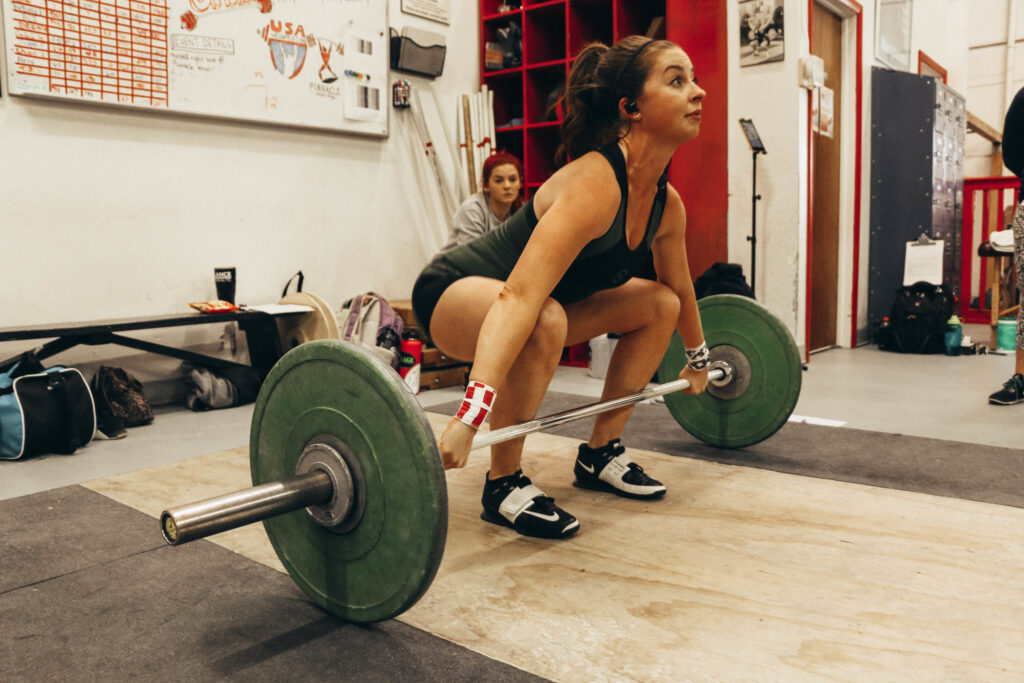You’ve probably heard of the deadlift. It’s one of the fundamental exercises in the fitness world. However, if you’re experiencing hitching in deadlifts, it can be a real obstacle to your progress. But what is hitching, and why does it happen? In this guide, we’ll delve into the 5 most common reasons you might be hitching in your deadlift and how to rectify each one.
Table of Contents
1. Inadequate Form: The Silent Saboteur
The deadlift, though seemingly straightforward, is a complex movement. And, like any complex movement, correct form is paramount. In many instances, hitching can be traced back to poor form.
- Understanding the Basics: First, let’s get our feet hip-width apart. Your hands should be just outside your knees. Now, when you pull the bar, keep it close to your shins. Many people let the bar drift away, leading to a suboptimal lifting position. This mistake often causes the dreaded hitch.
- The Fix: To counter this, regularly practice your form with lighter weights. Filming yourself can also provide invaluable feedback. It helps you identify and rectify form errors before they become ingrained habits.
2. Weak Glutes and Hamstrings: The Powerhouse Muscles
The deadlift isn’t just about your back. It relies heavily on the glutes and hamstrings, two powerhouse muscles. If these muscles lag behind, hitching can occur.
- Why They Matter: Your glutes and hamstrings play a vital role, especially when you’re lifting the bar past your knees. Neglect them, and your deadlift suffers. It’s as simple as that.
- Strengthening Solutions: To build strength in these areas, incorporate exercises like Romanian deadlifts, glute bridges, and hamstring curls into your routine. Over time, you’ll likely see an improvement not just in the prevention of Hitching in Deadlifts, but in your overall deadlift performance.
3. Grip Strength: Holding On or Letting Go?
Believe it or not, your hands play a pivotal role in deadlifts. If your grip isn’t strong, hitching can ensue.
- The Grip-Hitch Connection: As you fatigue, the bar might begin to slip. Instinctively, your body might hitch to counteract this. However, the issue isn’t with your deadlift technique but rather your grip.
- Improving Grip: Incorporate grip-specific exercises like farmers walks, plate pinches, or simply holding a deadlift bar for time. Over time, these exercises can significantly improve your grip strength, helping reduce the chance of Hitching in Deadlifts.
4. Mental Blocks: More Than Just Muscles
Sometimes, the barrier isn’t physical but mental. The weight might seem too heavy, leading to hesitations during the lift, manifesting as Hitching in Deadlifts.
- The Mind-Body Connection: If you doubt your ability to lift the weight, even subconsciously, you might compromise your form or even freeze up during the lift. This hesitation can result in Hensley Hitch.
- Overcoming the Block: Visualization can be a powerful tool. Before the lift, visualize yourself completing it flawlessly. Additionally, practice with lighter weights to build confidence. As you become more confident, gradually increase the weight, ensuring you maintain proper form.
5. Insufficient Warm-Up: Setting the Stage
You wouldn’t sprint without warming up first, right? The same principle applies to deadlifts. Jumping straight into heavy weights without adequate preparation can set the stage for Hitching in Deadlifts.
- The Warm-Up Importance: A good warm-up prepares your muscles and mind for the task ahead. It increases blood flow, ensuring muscles are limber and ready to perform.
- Warm-Up Right: Start with 5-10 minutes of light cardiovascular exercise to get the blood pumping. Follow this with dynamic stretches targeting the major muscles used in deadlifting. Lastly, perform several sets of deadlifts with lighter weights, gradually increasing the weight until you reach your working set.
In conclusion: Hitching in Deadlifts
While hitching in deadlifts can be frustrating, understanding its causes is the first step to overcoming it. Whether it’s form, muscle imbalances, grip strength, mental blocks, or inadequate warm-up, there’s always a solution. So, the next time you’re at the bar, remember these tips, and you’ll be well on your way to a hitch-free deadlift.







